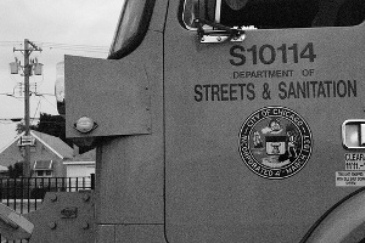Grid-Based Garbage Collection Saves Chicago Less Than Emanuel Projection
By Chuck Sudo in News on Apr 12, 2013 6:30PM
Mayor Rahm Emanuel’s office announced Thursday the city has saved $18 million annually switching garbage collection to a grid-based system from the old ward-by-ward model. While it’s nice to see late-19th century urban planning still works in the modern day, the savings are a far cry from the $60 million the Emanuel administration projected when the plan was announced in August 2011.
Emanuel and his City Council floor leader, Ald. Patrick O’Connor (40th) delicately navigated implementing the switch while soothing the egos of aldermen who used to control how garbage was collected in their wards, often as an example of that they were doing for their constituencies. As the Tribune’s John Byrne noted, however, the transition hasn’t always been smooth.
On Thursday, Streets and Sanitation Commissioner Charles Williams said his department is "working our way through those issues."Aldermen also expressed concern throughout the changeover that they would lose their ability to call for special pickups when needed, a long-cherished example of aldermanic prerogative.
Ald. Anthony Beale, 9th, said Thursday that most of his qualms were allayed as he saw the grid implemented in other parts of the city.
"We still have our ward superintendents, who are going to be addressing those" requests for special pickups, Beale said. He also said his constituents are happy they are finally getting household recycling this year.
The switch to a grid-based system was first broached by former Richard M. Daley in the final months of his mayoralty. The grid-based system is in its final stages of rollout on the South and Southwest sides. Williams said the savings allows his department to shift their attentions to other pressing matters.
“The grid system has proven to reduce lost time and increase work productivity not only in refuse collection services, but forestry and graffiti as well. Though the transition is complete, we are committed to continually re-evaluating all of our routes and resources to identify areas where we can streamline operations and improve our services for residents.”
